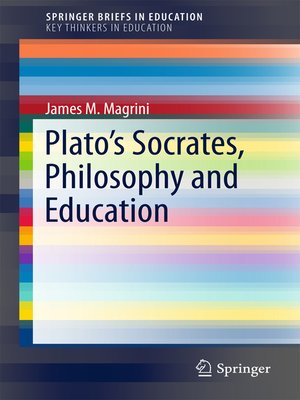
Sign up to save your library
With an OverDrive account, you can save your favorite libraries for at-a-glance information about availability. Find out more about OverDrive accounts.
Find this title in Libby, the library reading app by OverDrive.



Search for a digital library with this title
Title found at these libraries:
| Library Name | Distance |
|---|---|
| Loading... |
This book develops for the readers Plato's Socrates' non-formalized "philosophical practice" of learning-through-questioning in the company of others. In doing so, the writer confronts Plato's Socrates, in the words of John Dewey, as the "dramatic, restless, cooperatively inquiring philosopher" of the dialogues, whose view of education and learning is unique: (1) It is focused on actively pursuing a form of philosophical understanding irreducible to truth of a propositional nature, which defies "transfer" from practitioner to pupil; (2) It embraces the perennial "on-the-wayness" of education and learning in that to interrogate the virtues, or the "good life," through the practice of the dialectic, is to continually renew the quest for a deeper understanding of things by returning to, reevaluating and modifying the questions originally posed regarding the "good life." Indeed Socratic philosophy is a life of questioning those aspects of existence that are most question-worthy; and (3) Itaccepts that learning is a process guided and structured by dialectic inquiry, and is already immanent within and possible only because of the unfolding of the process itself, i.e., learning is not a goal that somehow stands outside the dialectic as its end product, which indicates erroneously that the method or practice is disposable. For learning occurs only through continued, sustained communal dialogue.







